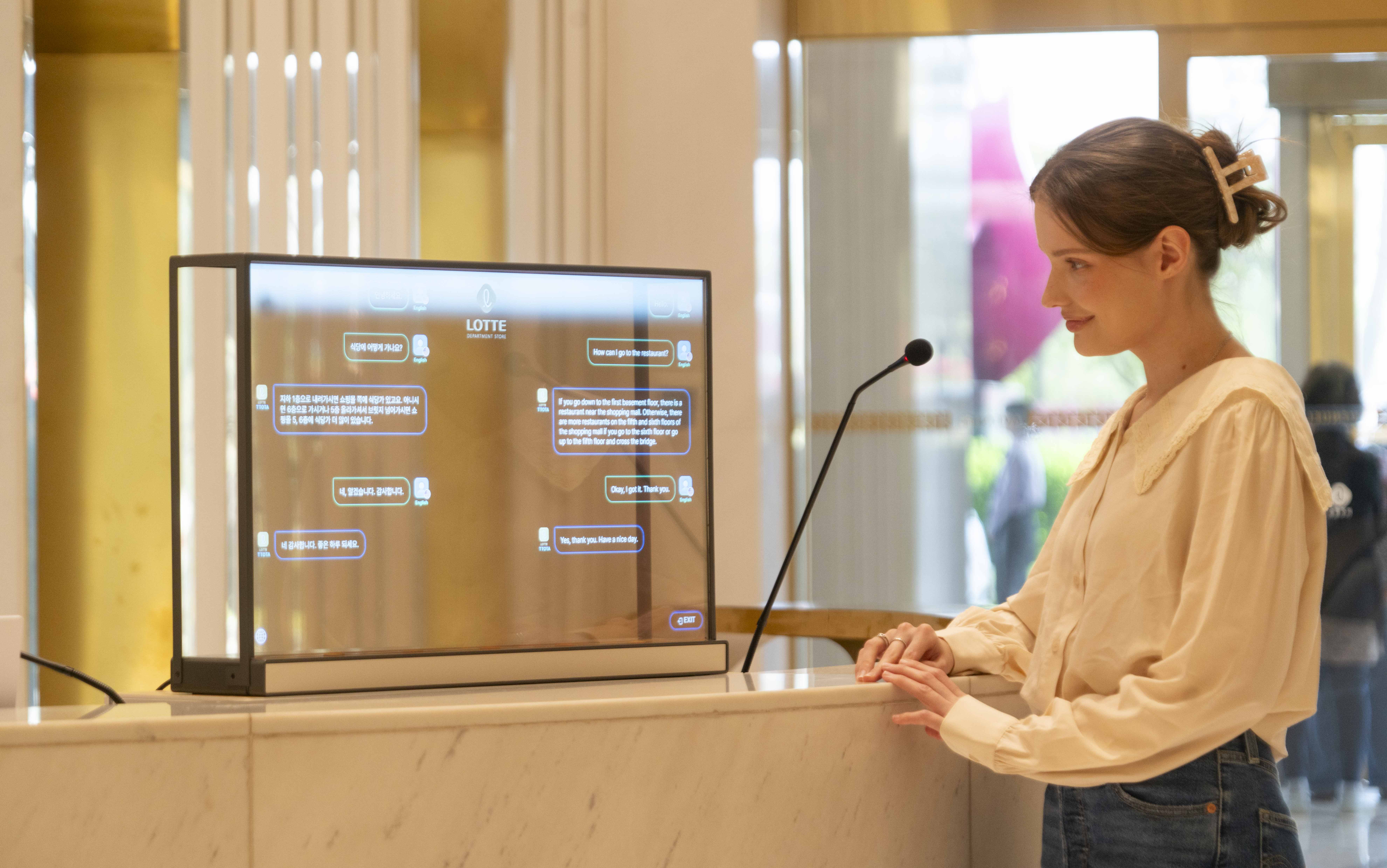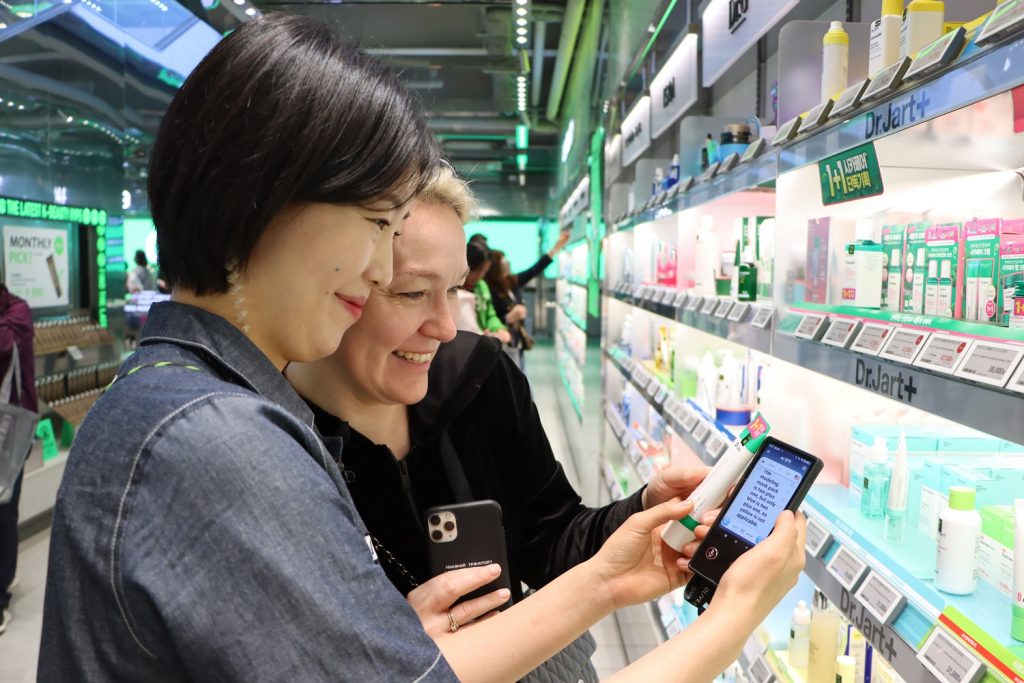
A customer from overseas uses Trans Talker, an artificial intelligence interpretation service at the Jamsil branch of Lotte Department Store in Seoul's Songpa-gu District. (SK Telecom)
By Kim Hyelin
With the number of foreign tourists nearing that of before the outbreak of the COVID-19 pandemic, the retail sector is expanding interpretation services based on artificial intelligence (AI) to enhance convenience for foreign shoppers.
The nation's largest communication service operator SK Telecom on April 22 said it launched Trans Talker, an AI-based solution that provides simultaneous interpretation in 13 languages.
The languages include English, Japanese, Chinese, Arabic, Spanish, Vietnamese, Thai, Indonesian, Malay, French, German and Russian.
When a foreign tourist asks a store employee for information in the former's mother tongue to the microphone installed on a monitor at the information desk, the question is interpreted into Korean and appears on the screen. The worker's answer is also interpreted and appears on screen.
Based on AI, this device boasts technologies such as voice recognition, natural language processing, interpretation engine and large language model.

A worker at the Myeong-dong branch of the beauty and health product franchise CJ Olive Young in Seoul communicates with a foreign customer through a portable translation device. (CJ Olive Young)
Beauty and health product chain CJ Olive Young has also introduced a portable device for real-time translation of 16 languages at all nationwide branches.
The device offers simultaneous translation in 16 languages including English, Chinese, Japanese, Vietnamese, Russian and Mongolian. Its internal camera allows real-time translation so that a user can immediately learn the names and ingredients of desired products.
According to tourism statistics from December last year released early this year by the Korea Tourism Organization, some 11 million foreign tourists visited the country last year, or 63% of the figure in 2019, the year before the outbreak of the COVID-19 pandemic.
kimhyelin211@korea.kr